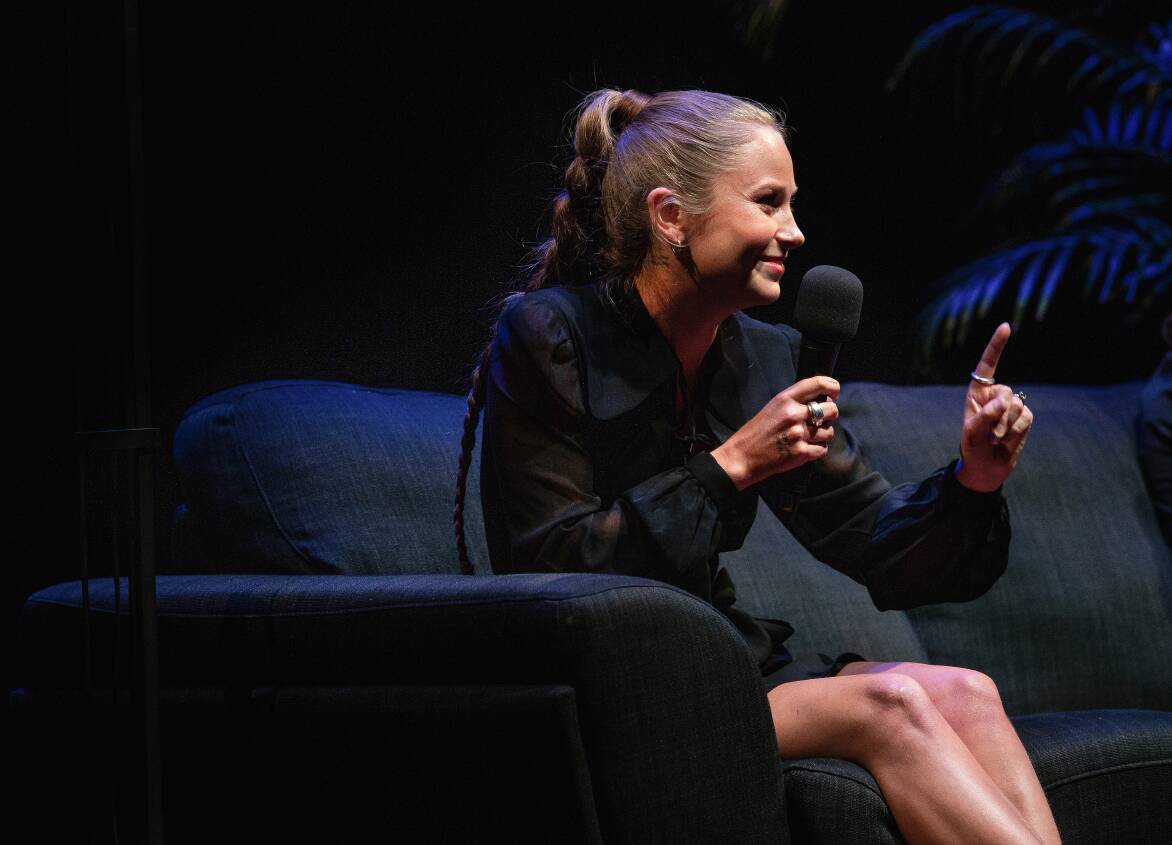
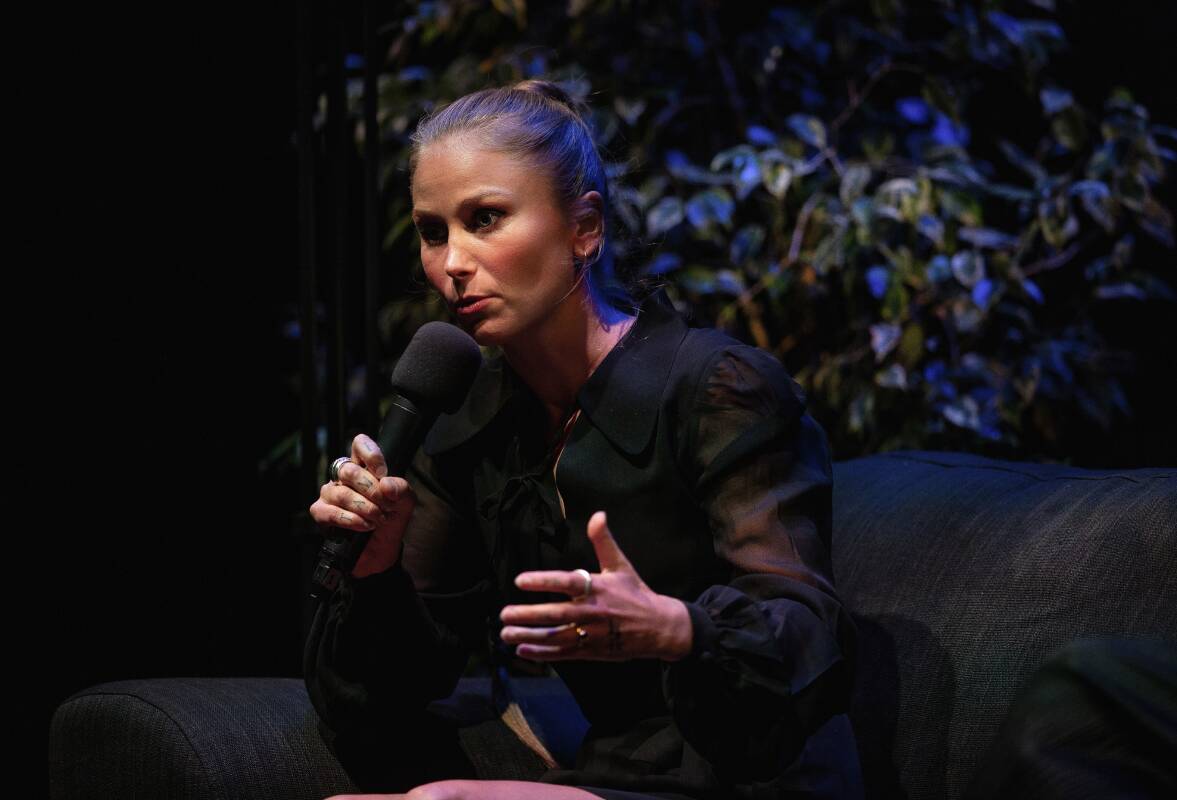
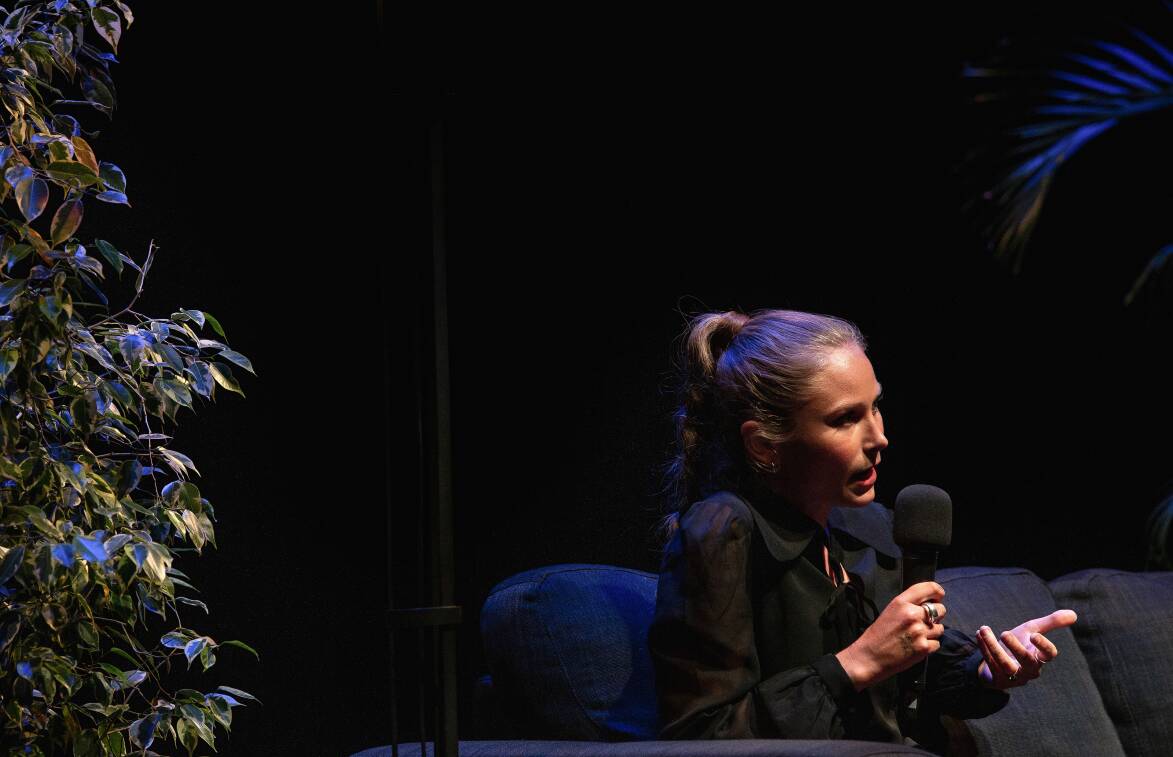


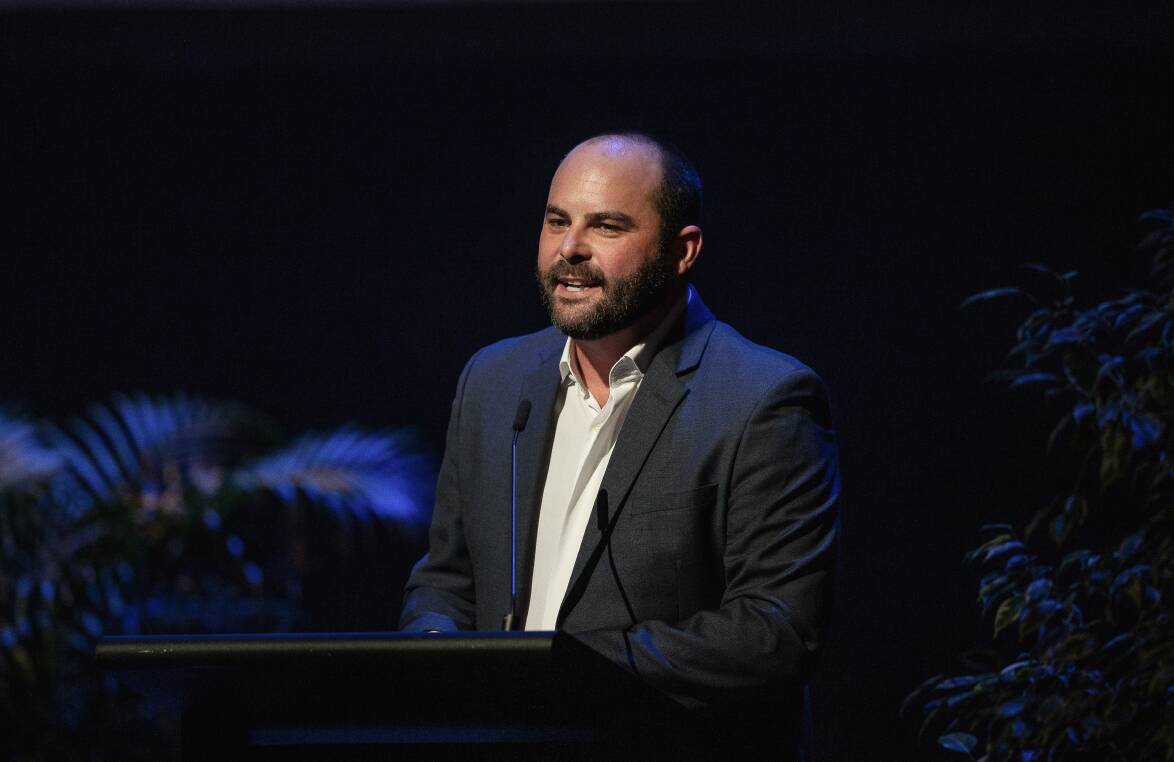
Grace Tame pulls no punches.
The headline speaker for the 10th annual Newcastle Writers Festival had the packed house at Civic Theatre between laughter and tears, captivated by every word, as she opened a weekend's long extravaganza of ideas and a celebration of good-spirited curiosity.
Even as she, at times, wandered in her unflinching conversation with Australian journalist Maddison Connaughton, Tame seemingly held nothing back, turning an incisive gaze on everything from the treatment of victims of abuse by the national media, to her own survival and ongoing trauma.
At times heartbreaking, at times hilarious, with a wry wit and a sometimes dark sense of humour, Tame regularly returned to a prescient concern of the age of information: whose story gets told, and by whom?
Journalists, for example, she said, can oftentimes feel a problematic sense of ownership over the stories they report out; they can forget that at the end of the phone line, there are real people whose lives, at the time they meet them, are often in a state of upheaval. Those same stories can have long-lasting consequences, she said.
At the time that her own survival of abuse as a teenager was reported, one memorable headline referred to her abuser as having "an affair" with a student; a term, she said, dramatically framed abuse in terms of a relationship.
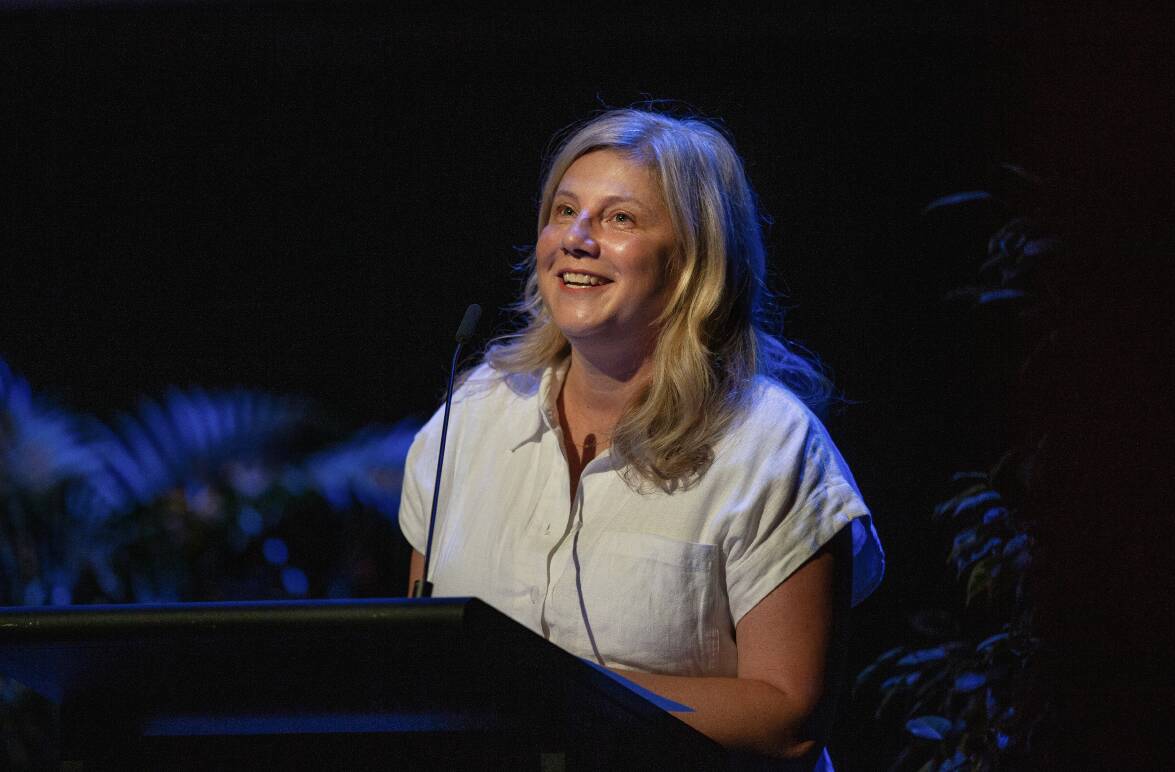
Tame, named Australian of the Year in 2021, spoke about her memoir The Ninth Life of a Diamond Miner, and the path that saw her to become a national activist for better support for victims of child sexual abuse, and lead the battle to change the law so that she could publicly speak about what happened to her.
"They're not trying to get your attention," Tame said at one point of survivors of abuse, "They don't want revenge - they just want their own self back."
The theme of who gets to speak, and in what capacity, was one that set the tone for the weekend and cropped up again in Richard Fidler's appearance at the Newcastle Conservatorium of Music on Saturday afternoon, April 1. Fidler, in conversation with retired radio presenter Paul Bevan on his new book which delves into the history of Imperial Baghdad and the vibrant culture of the Eastern world during the Western Dark Ages, referenced a Medieval Arabian historian who compiled an exhaustive history of the world in 34 volumes.
The authority of the work, Fidler said, comes from a uniquely Eastern referencing system of exhaustive lists of speakers through whom a fact is passed down.
"Someone said to someone said to someone said to someone," Fidler said, "This 'naming your sources', so you can follow the chain of information ... he really wants you to believe that what he is saying is authoritative and (because of this) it is about as authoritative as Medieval history gets."
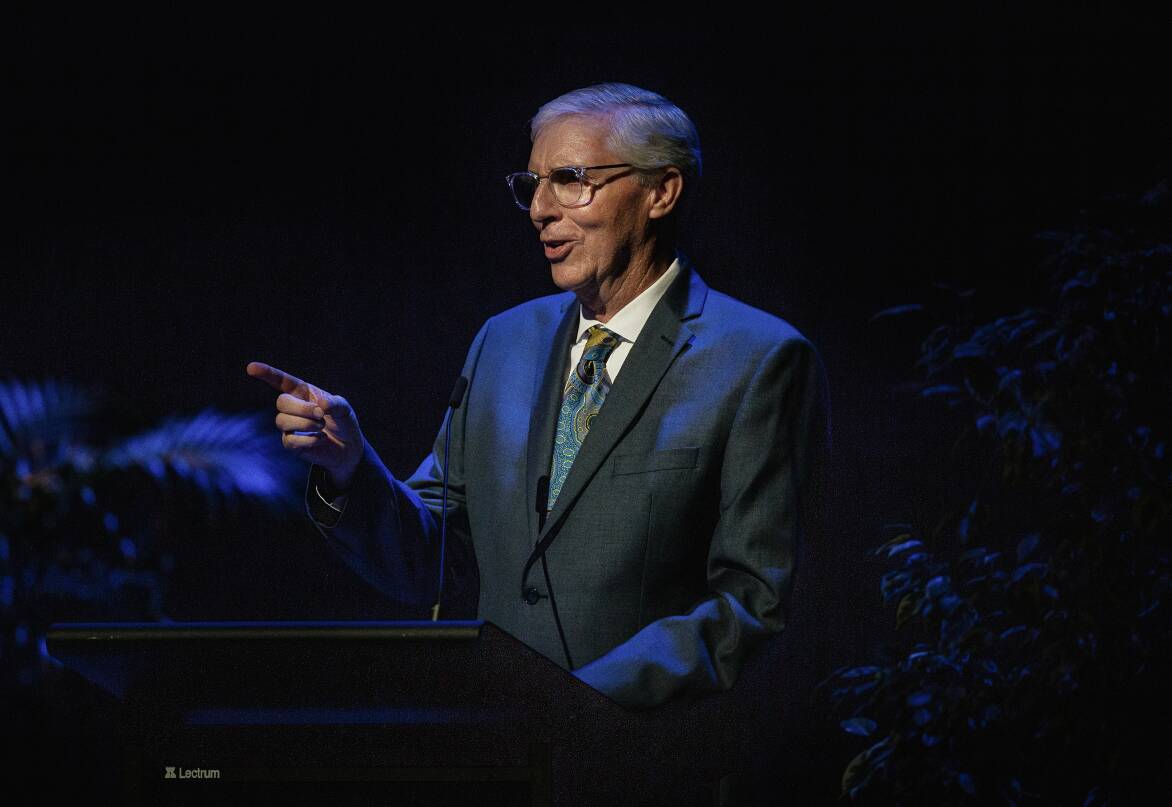
Fidler's appearance at the 10th Newcastle Writers Festival rounded the events growing presence on the city's social calendar; in 2013, he opened the first Writers Festival.
Festival founding director, Rosemarie Milsom, spoke Friday night of how the festival had transformed from a fledgling affair to a thriving annual celebration of ideas, literature, music and culture.
The festival returned after a COVID-imposed hiatus in 2023.
"Books provided much-needed solace and entertainment in the past couple of years and the whole reason the festival exists is to bring writers and readers together," she said in the lead up to the event on Friday night,
"The festival community is passionate and everyone is excited to be back together again."







